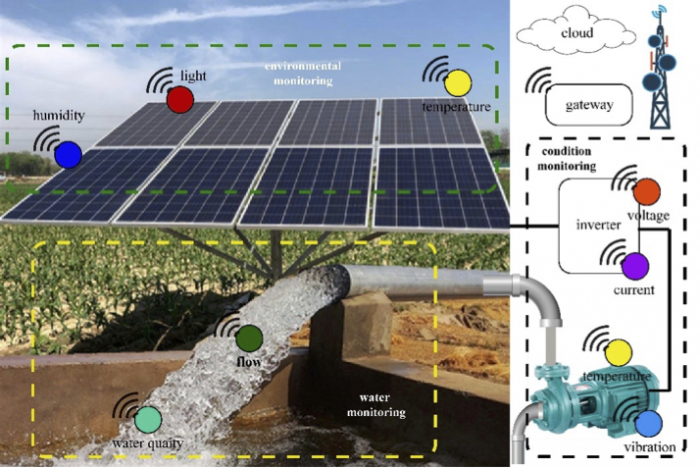At MUET, researchers from diverse disciplines are collaborating on projects that address critical challenges in areas such as organic fertilizers, plant disease detection, and precision agriculture.
Organic Liquid Fertilizer for Hydroponic Cultivation
Professor Dr. Sheeraz Ahmed Memon from the Environmental Engineering & Management Department is leading an interdisciplinary research project titled "A Food Waste-Derived Organic Liquid Fertilizer for Sustainable Hydroponic Cultivation of Lettuce, Cucumber and Cherry Tomato." This study focuses on developing an organic liquid fertilizer derived from food waste, offering a sustainable solution for hydroponic cultivation.
By repurposing food waste into nutrient-rich fertilizers, the research team aims to promote eco-friendly agricultural practices while enhancing crop yield and quality in hydroponic systems. This interdisciplinary approach combines expertise in environmental engineering, waste management, and agricultural sciences to create a circular economy model that transforms waste into a valuable resource for sustainable food production.
Machine Learning for Plant Disease Detection
In the field of precision agriculture, Dr. Shadi Khan from the Mechatronics Engineering department has undertaken an interdisciplinary project titled "Bacterial Blight and Cotton Leaf Curl Virus Detection Using Inception V4 Based CNN Model for Cotton Crops." This research involves the development and application of a convolutional neural network (CNN) model based on the Inception V4 architecture for detecting bacterial blight and cotton leaf curl virus in cotton crops.
By integrating expertise in mechatronics engineering, computer vision, and machine learning, the project aims to assist in plant disease diagnosis, which is a critical aspect of agricultural management and crop protection. This interdisciplinary approach has the potential to revolutionize disease detection and management, leading to improved crop yields, reduced pesticide use, and enhanced sustainability in the cotton industry.
Energy Efficient Agriculture
Dr. Umair Ahmed Korai and Prof. Dr. Faisal Karim Shaikh are developing a Smart Tubewell for the Energy Efficient Agriculture System, funded by IEEE SIGHT. The project focuses on the development of a sensing subsystem, condition monitoring subsystem, and communication subsystem. The sensing subsystem is further divided into environmental monitoring and water monitoring subsystems. Fig. 1 provides an overview of how the three subsystems are combined to form a functional IoT system for Smart Tubewell.

Figure 1: IoT system for smart tubewell for energy-efficient agriculture
The data from various sensors is collected, sorted, and stored on a cloud for further processing and archive. Fig. 2 shows the installation of an IoT system for a smart tubewell.

Figure 2: Installation of IoT system for tubewell
The project also focuses on training and awareness sessions for the local community. Training was conducted to make the local community aware of advancements in engineering and new technologies. The focus was on how these technologies can improve their lifestyle and help in the conservation of the precious resource of water. Also to make aware them that these technologies are to help them and not to replace them.
Fig. 3 and Fig. 4 show the pictures captured with the local community during the discussion.

Figure 3: Interaction with the local community

Figure 4: Group picture with the community